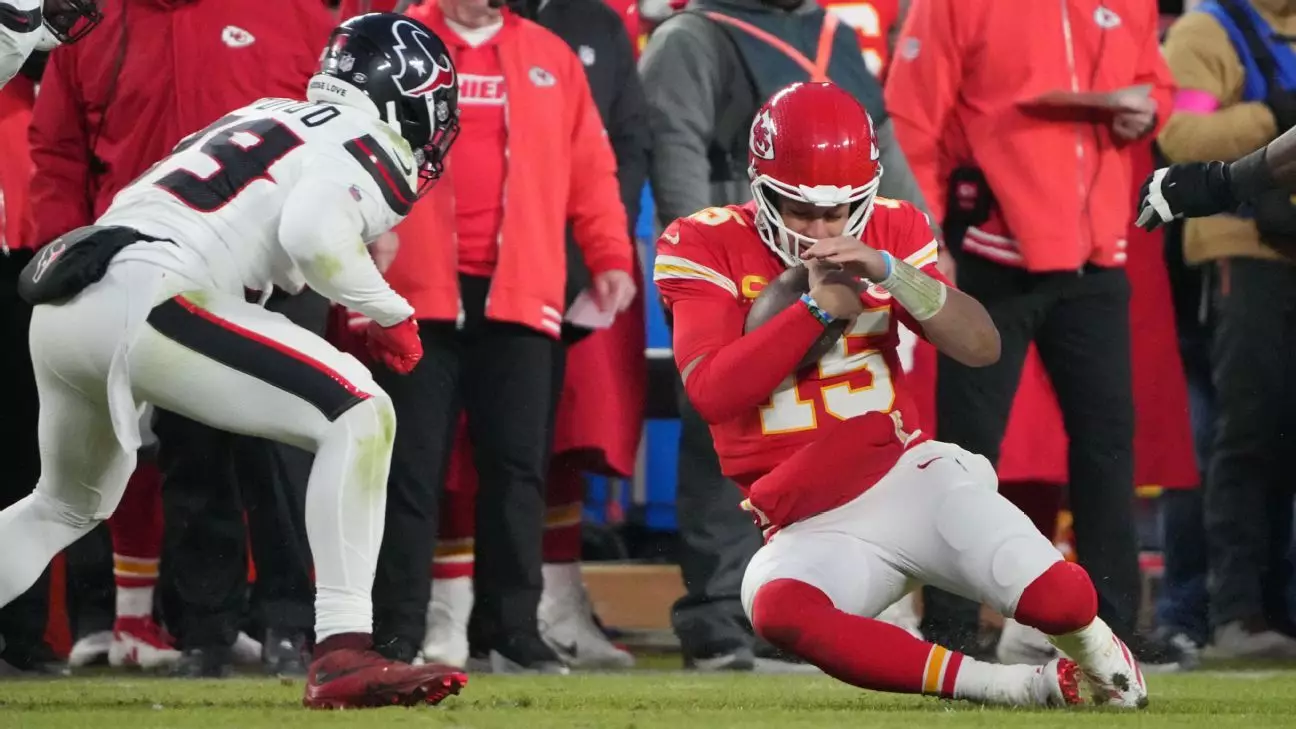The debate surrounding the officiating standards in the NFL has reached a boiling point, particularly with the Patrick Mahomes-led Kansas City Chiefs frequently caught in the crosshairs of scrutiny. The focus of this discussion lies not just on Mahomes, but on the overarching system of how penalties are assessed and the role of replay assist in maintaining the integrity of the game. As the league anticipates expanding its replay assist options in the off-season, this pivotal shift could introduce much-needed objectivity to the decisions made on the field.
Understanding Replay Assist: A Brief Overview
Originally implemented in 2021, replay assist was designed to enhance the accuracy of officiating by allowing designated officials to intervene in specific situations using video evidence. This system, while effective for certain calls like determining ball spots or clarifying passing plays, has faced challenges in application, especially regarding player safety penalties. The fresh aim to broaden this reach to include quarterback slides and other instances will not just refine officiating but also provide crucial protection to players, an issue highlighted by recent contentious calls during playoffs.
The pivotal moment that has ignited public discourse occurred during an AFC playoff game where Mahomes evaded several defenders, yet still received a significant penalty for unnecessary roughness against the Houston Texans. The call raised eyebrows, including those of ESPN analyst Troy Aikman, who argued that the quarterback, in this scenario, was utilizing his runner’s privilege—an important distinction in how penalties should be assessed. Aikman’s commentary reflects a shared sentiment in the football community: there must be a clear definition of what constitutes a penalty in the fluid dynamics of a scramble versus a hit on a defenseless quarterback.
With the NFL’s competition committee convening soon to discuss the incorporation of quarterback slides into replay assist, the league has an opportunity to assist in aligning its officiating standards with the expectations of the players and fans alike. Currently, there exists a perception—some might argue a stigma—around how particular quarterbacks, especially those with Mahomes’ prominence, are treated differently in similar situations. However, Mahomes himself has openly pushed back against these assertions, crediting officials for their efforts to call games fairly. This highlights an essential paradox in the discussion of officiating: the need for external processes to protect both players and the integrity of the sport.
One of the driving forces behind any changes to replay assist should be player safety. With quarterbacks increasingly becoming dynamic playmakers who often extend plays, the need to clarify the rules governing their treatment is paramount. An effective and thorough expansion of replay assist would alleviate some of the pressure placed on officials, making them less susceptible to human error, thereby enhancing the safety of all players on the field. Clear guidelines on what constitutes a legitimate tackle versus unnecessarily rough contact would significantly benefit the game.
As the NFL moves toward potentially adopting a broader replay assist framework for the upcoming season, it reflects an organization’s willingness to evolve in response to player behavior, fan expectations, and the complexities of modern football. While the expansion may not resolve every dilemma regarding officiating, it paves the way for a more structured and predictable response to the nuances of quarterback sliding and related penalties. As the conversation continues, one thing remains clear: the NFL is at a crossroads where it can redefine the value of the game, prioritize player safety, and enhance fan engagement through improved officiating standards. The time for change is now, and it must be embraced wholeheartedly to ensure the sport’s future remains bright.

